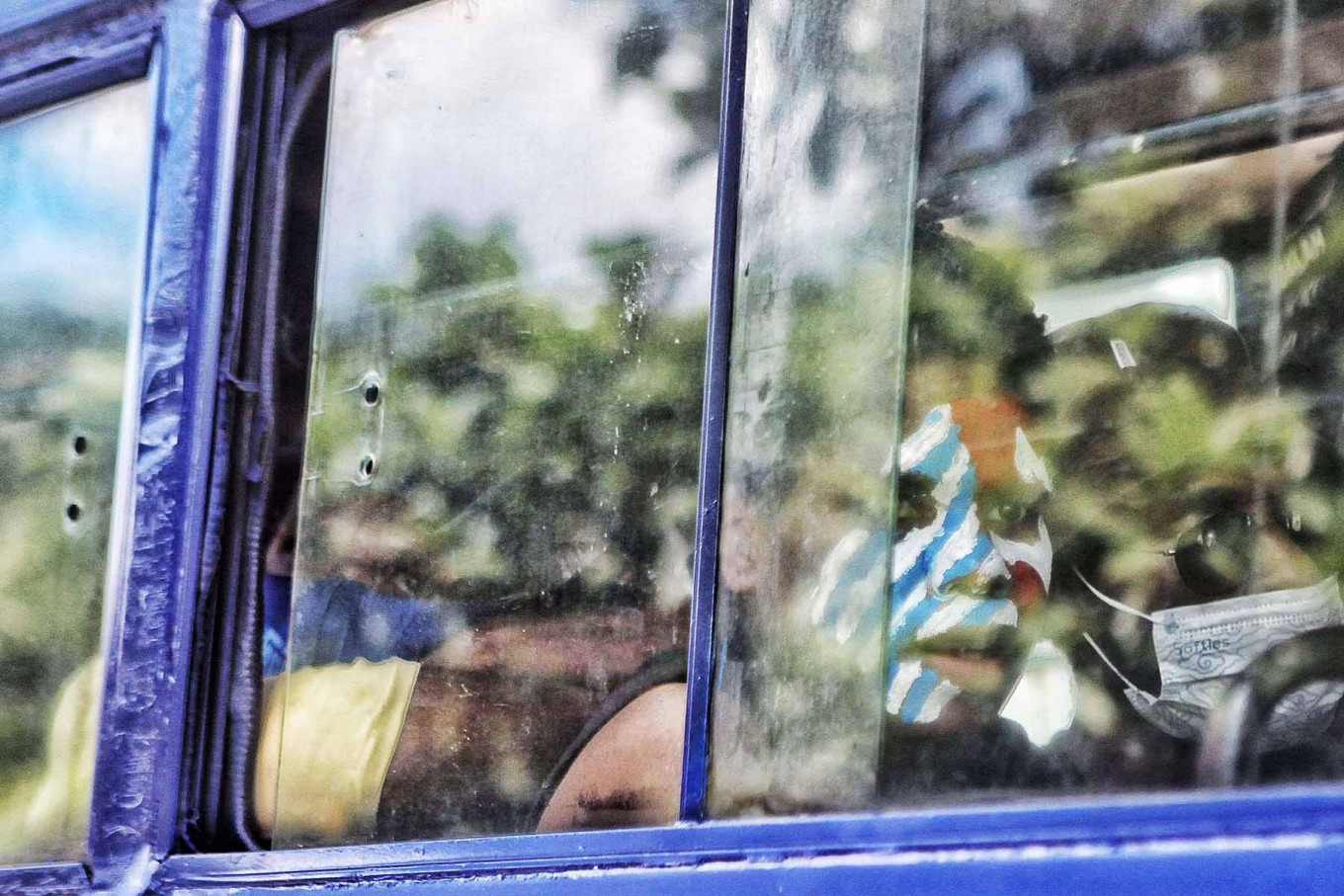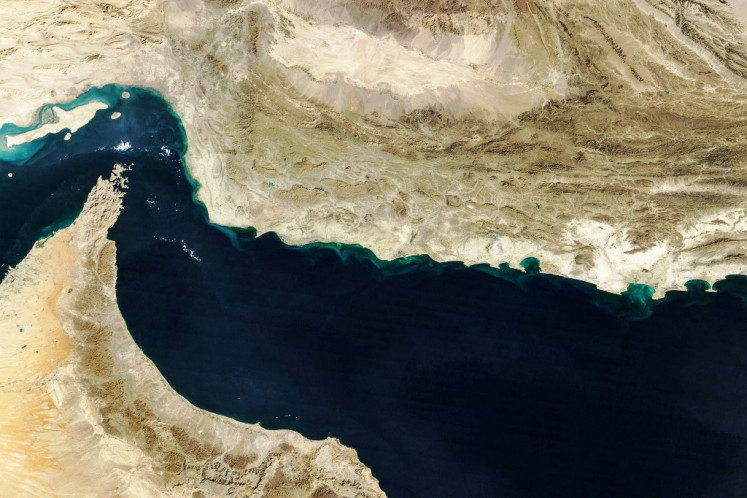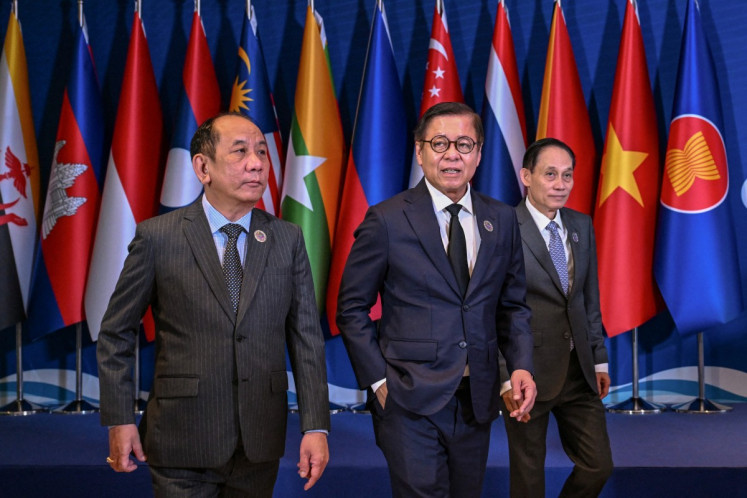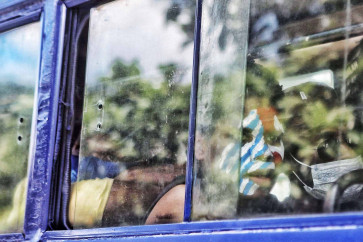Popular Reads
Top Results
Can't find what you're looking for?
View all search resultsPopular Reads
Top Results
Can't find what you're looking for?
View all search resultsTo Papuans: ‘Do not be afraid. I bring you good news’
Specifically, the priests of the five Papuan dioceses criticized Ignatius Cardinal Suharyo, the KWI chairman and Archbishop of Jakarta, for doing little to help ease the Papuans’ prolonged suffering.
Change text size
Gift Premium Articles
to Anyone
 Members of the Papuan Students Alliance (AMP) take a ride in a bus in Jakarta on Dec. 1 prior to staging a rally in conjunction with the commemoration of the declaration of the West Papua State on Dec. 1, 1965. Rallygoers reject the government’s policy to give special autonomy to Indonesia’s easternmost provinces and demand that the people of West Papua are granted self-determination instead. JP/Seto Wardhana (JP/Seto Wardhana)
Members of the Papuan Students Alliance (AMP) take a ride in a bus in Jakarta on Dec. 1 prior to staging a rally in conjunction with the commemoration of the declaration of the West Papua State on Dec. 1, 1965. Rallygoers reject the government’s policy to give special autonomy to Indonesia’s easternmost provinces and demand that the people of West Papua are granted self-determination instead. JP/Seto Wardhana (JP/Seto Wardhana)
A
fter reading the 10-point “Moral Call for Justice and Truth” from 147 Catholic priests of five dioceses in Papua and West Papua, including a sharp rebuke against the Bishops Council of Indonesia (KWI) for its “reluctance” to speak out in defense of indigenous Papuans, the infamous remark of the Jewish high priest during Jesus’ crucifixion suddenly came to mind. It is very rare in the Catholic tradition that priests openly criticize their leaders.
Just to be clear, the few lines from the Bible I quote in this column have nothing to do with promoting Christianity, and are merely intended to elevate the spirits of our fellow sisters and brothers in the troubled provinces of Papua and West Papua ahead of Christmas.
Specifically, the priests of the five Papuan dioceses criticized Ignatius Cardinal Suharyo, the KWI chairman and Archbishop of Jakarta, for doing little to help ease the Papuans’ prolonged suffering. They questioned the cardinal’s refusal to discuss the long-standing conflict on Papuan soil “holistically, seriously and thoroughly” at the recent annual meeting of bishops, with the bishops in the two provinces also targeted in their criticism.
“Don’t just stand still, or as though [you] do not care about the wounded sense of humanity of the Papuan people,” the priests said in a statement read out during a press conference to commemorate Human Rights Day, which fell on Dec. 10.
The archbishop and the bishops have not responded to the statement.
The priests also called on both local and central governments for “a clear policy on migration” to anticipate “an increasingly strained [...] relationship between migrants and [indigenous Papuans]”. Mass migration from other Indonesian islands to Papua has dramatically changed the local demographics, and indigenous Papuans feel they have been left behind on their own soil.
“Papua is not vacant or a no-man’s-land. Its owners are divided into seven customary areas: La Pago, Mee Pago, Ha Anim, Bomberay, Sairey and Mamta,” said Father John Bunay, the priests’ spokesman.

















